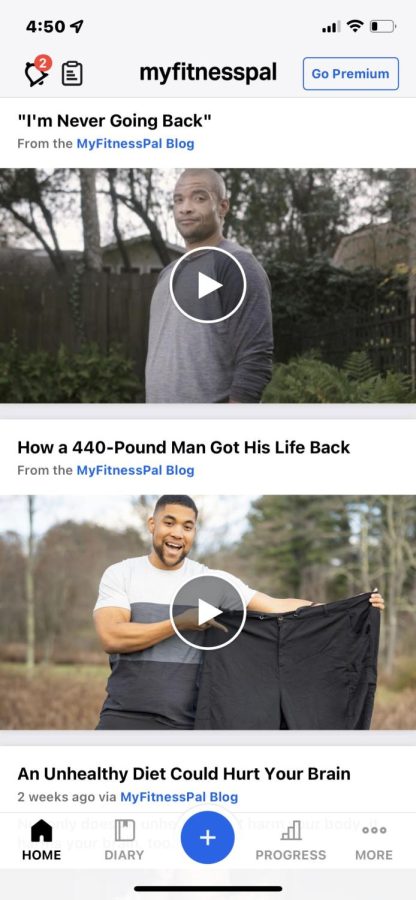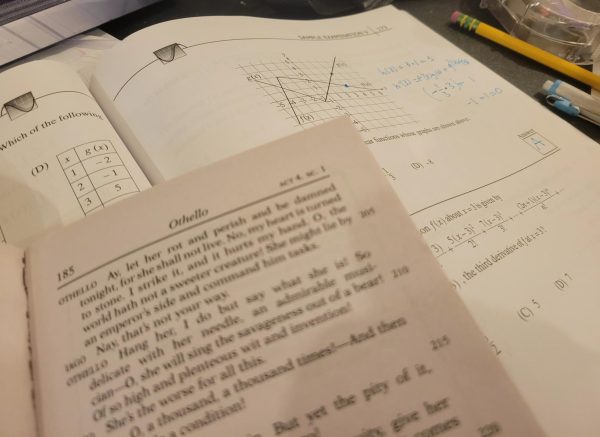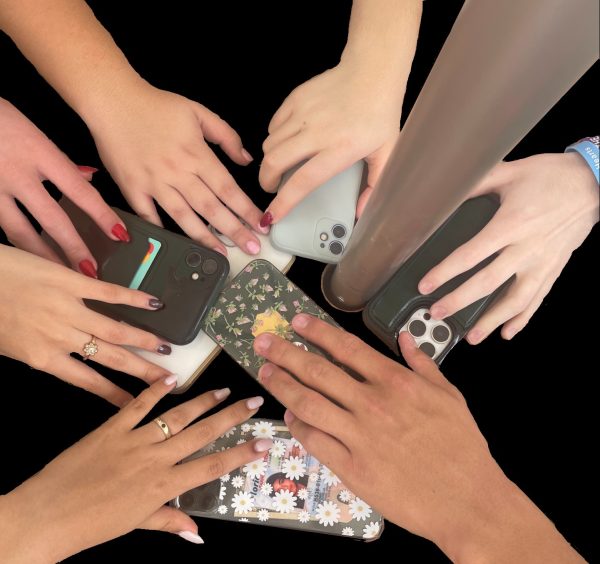The mental health impact of MyFitnessPal
More stories from Emma Dvorkin '24
Emma Dvorkin '24 via MyFitnessPal
MyFitnessPal’s front page features plenty of innocuous-seeming content, but critics claim its calorie-counting function does more harm than good.
Content warning: This article discusses eating disorders such as anorexia nervosa. Although the article includes an interview with a licensed psychologist, the information provided in the responses should not replace seeking a formal consultation if the reader is concerned with possible disordered eating and/or mental health issues. The Eating Disorder Helpline can be reached here.
Before smartphones, people tracked their calories with calorie counting books, and it is easy to understand why only true fitness junkies would use them: they were around 700 pages long. That’s why Mike Lee founded MyFitnessPal, an app that currently has 50 million users and 3.5 million foods in its database. MyFitnessPal hit the market only a year after the first Android phone came out, which allowed the app to revolutionize the future of nutrition in tech.
In his book Trackers: How Technology is Helping Us Monitor our Health, Richard McManus published an interview with Lee in which they discuss what prompted the idea of MyFitnessPal. In the interview, Lee explains how the flexibility of mobile tracking sets MyFitnessPal apart from its competitors. “You want to be tracking what you’re actually eating…and [use it] when you’re out and about,” he said.
Many students at RE have used the app to help them achieve their fitness goals, including Michael Wesoloski ’24, who started using it in September 2021. Wesoloski created a rough caloric goal for each day and used the app’s built-in barcode scanner to track the foods he consumed automatically. He said using the app was “fairly effective,” and his health “noticeably improved.”
In recent years, however, MyFitnessPal has attracted controversy, with critics alleging that the app exacerbates eating disorders for some users. Researchers at the University of Louisville conducted a study that surveyed 105 diagnosed eating disorder patients. 30% of participants revealed that they used MyFitnessPal and expressed the belief that it contributed to their eating disorder.
Though MyFitnessPal was not intended or designed to induce eating disorders by any means, it is important to evaluate why calorie-counting apps may be dangerous to people with not just diagnosed eating disorders, but also early eating disorder tendencies, such as skipping meals, new diets, and/or preoccupation with calories or weight.
There are a variety of eating disorders that have the potential to be accelerated with calorie tracking, but this article will focus specifically on anorexia nervosa, which is most frequently affected by calorie tracking apps. According to the Mayo Clinic, anorexia nervosa is an eating disorder that involves “an abnormally low body weight, an intense fear of gaining weight and a distorted perception of weight.” People with anorexia take extreme measures to “[control] their weight and shape,” sometimes including vomiting or using laxatives after eating.
Perfectionism can play a huge role in the lives of anorexia patients, which is why apps like MyFitnessPal can potentially exacerbate their condition. Dr. Carina Massa, a Miami-based child psychologist, explained that calorie counting can lead to an obsession with food intake, and “can contribute to an increase in anxiety and negative self-esteem.” She continued by saying that apps like MyFitnessPal can contribute to a restricted, unbalanced diet.
Studies like the one conducted at the University of Louisville suggest that MyFitnessPal does not give people eating disorders directly; instead, people who already have eating disorder tendencies gravitate to the control the app offers and abuse it on their own terms.
Coach Victoria Druehl, who teaches health and athletics courses at RE, thinks there is a way to use the app effectively—but only with a few strict caveats. First, she suggests that nobody under 13 should be using calorie tracking apps unless there is a serious underlying issue. Second, she recommends that everyone consult a registered dietitian to evaluate if it’s the right measure for them. Before that, Druehl says one should sit down and figure out what one’s goals and intentions are, as well as make sure those goals are realistic.
Finally, Coach Druehl thinks it’s important to do research and understand what your caloric needs are. The app “provides an effective way to track calories, but as a user, you need to understand what portions and serving sizes are to accurately track that,” she said.
For Massa, the difference between a healthy relationship to MyFitnessPal and an unhealthy one boils down to what the user intends to do with it. The user must have “flexible and curious information-seeking habits rather than a reliance on the app for setting rules for one’s lifestyle.”
Either way, however, both Massa and Druehl agreed that the app is no substitute for talking with a registered dietitian.
Emma Dvorkin '24 is a senior at Ransom Everglades School and the Editor-In-Chief of the RE Catalyst. She is a fellow of the RE Bowden Fellowship and is...











